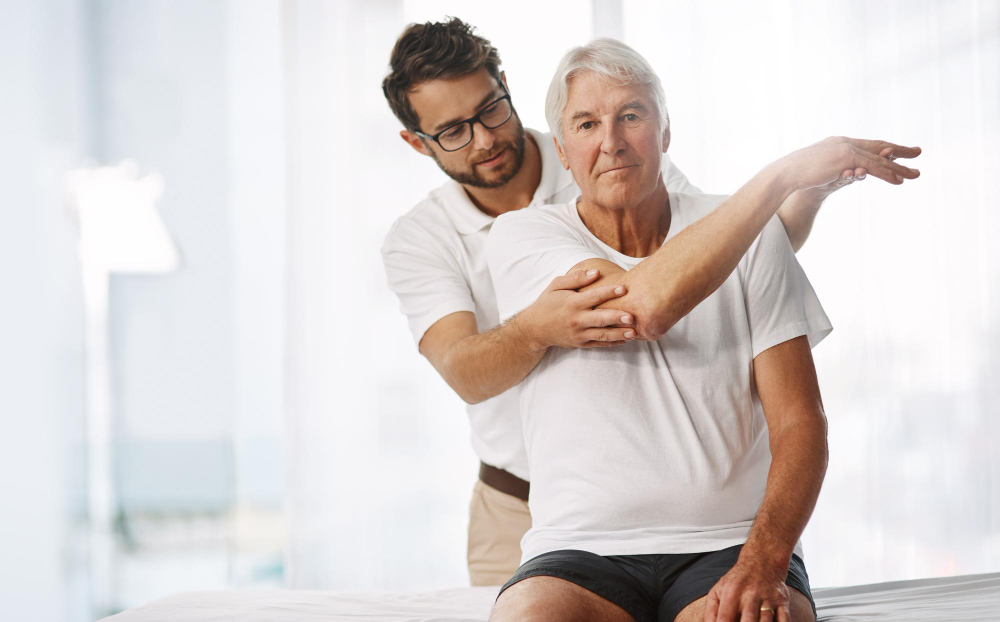
Rotator Cuff Repair
Rotator cuff repair is a surgical procedure aimed at addressing a tear in the rotator cuff, which is a group of muscles and tendons surrounding the shoulder joint. These muscles and tendons play a crucial role in shoulder stability and function. Rotator cuff tears can occur due to injury, overuse, or degenerative changes over time. The rotator cuff repair procedure typically involves the following steps:
The artificial hip joint, akin to its knee counterpart, comprises several essential components:
1. Assessment: The orthopedic surgeon assesses the size, location, and severity of the rotator cuff tear through imaging studies, such as magnetic resonance imaging (MRI) or ultrasound.
2. Arthroscopy: The surgery is often performed arthroscopically, using small incisions and a tiny camera (arthroscope) to visualize the inside of the shoulder joint. This minimally invasive approach allows for better visualization and reduced tissue trauma.
3. Tendon Mobilization: If the torn tendon ends are frayed or retracted, the surgeon mobilizes and repositions them to facilitate the repair.
4. Suturing the Tendon: The surgeon then uses sutures or anchors to secure and stitch the torn tendon back to its original attachment site on the bone.
5. Rehabilitation: Following surgery, a rehabilitation program is crucial for recovery. Physical therapy helps in restoring shoulder range of motion, strength, and function. The goal is to optimize the healing of the repaired rotator cuff and prevent stiffness.
“To create a successful commercial building, we believe in the power of the innovative design, functional spaces, and sustainable solutions. Our team is dedicated to delivering excellence, tailored to meet your specific business”
Rotator cuff repair is indicated for significant tears that cause pain, weakness, and functional limitations. It is particularly beneficial for full-thickness tears or large tears that do not respond adequately to conservative treatments like physical therapy or anti-inflammatory medications.

Benefits of Rotator Cuff Repair:
1. Restoration of Function: Repairing the rotator cuff aims to restore normal shoulder function, alleviate pain, and improve range of motion.
2. Prevention of Further Damage: Timely repair can help prevent the progression of the tear and reduce the risk of developing secondary issues, such as shoulder impingement or arthritis.
3. Minimally Invasive Approach: Arthroscopic techniques result in smaller incisions, less postoperative pain, and potentially faster recovery compared to open surgery
.It's important to note that the decision for rotator cuff repair is based on factors such as the size and location of the tear, the patient's overall health, and the functional goals of the individual. Not all rotator cuff tears require surgery, and the orthopedic surgeon will consider conservative options before recommending surgical intervention. The rehabilitation process is a critical component of the overall success of rotator cuff repair, and patients are typically guided through a gradual and progressive exercise program to optimize recovery.










